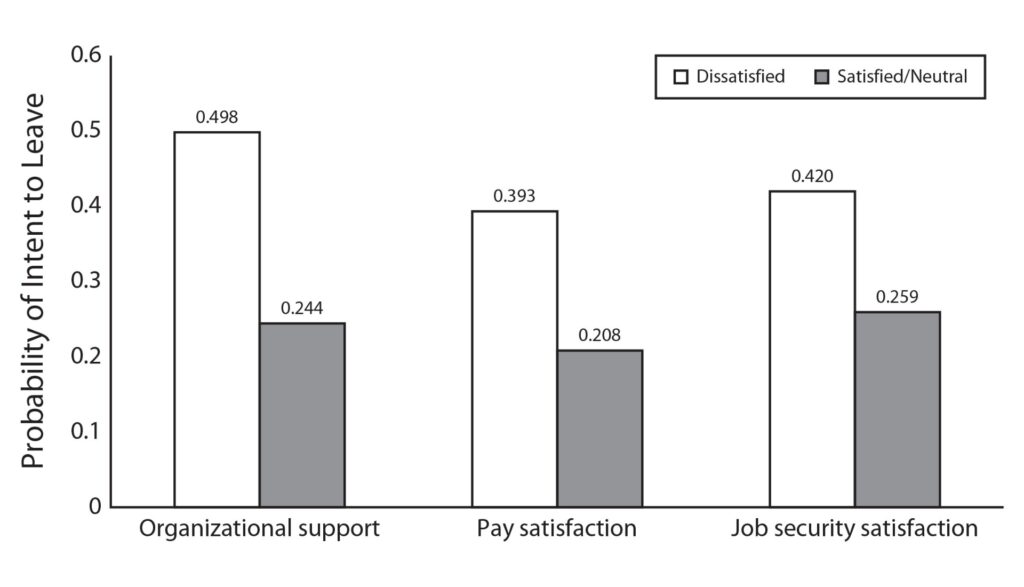Retaining Community Health Workers
Dissatisfaction with organizational support, pay, and job security doubled the likelihood of community health workers intending to quit their jobs.

Read Time: 2 minutes
Published:
Community ambassadors. Health educators. Promotoras de salud. Community health workers (CHWs) go by many names and are crucial members of the public health workforce. Hired by health departments, CHWs serve as front-line promoters of health within their often underserved and minority communities. They leverage their community connections to improve access to health education and services for local residents. CHWs dedicate their lives to helping others, but public health systems frequently fail to support them adequately.
There are an estimated 67,200 CHWs in the U.S., a number predicted to continue growing over the next decade. Despite their increasing importance, CHWs face numerous challenges in their work. They often receive low salaries for high-stress jobs that frequently lead to burnout. The struggles CHWs face result in high turnover rates in health departments.
Chelsey Kirkland and colleagues analyzed the organizational factors that lead CHWs to quit their jobs at local and state health departments. They used data from the 2017 and 2021 Public Health Workforce Interests and Needs Survey – a national survey of government public health workers. The researchers evaluated workers’ intention to leave their organization within the next five years and their reasons for leaving.

The figure above demonstrates how likely a worker is to quit based on their satisfaction with organizational support, pay, and job security. Researchers found that dissatisfaction with these factors, particularly organizational support, doubled the likelihood of CHWs intending to quit than those who were satisfied.
The authors suggest several opportunities for organizational improvements to bolster CHW retention. In addition to better pay, more training, professional development opportunities, and prioritizing diversity, equity, and inclusion initiatives, may help to retain workers.
A more stable workforce can foster and sustain trust between workers and the communities they serve. If CHWs fail to maintain the trust of their communities, health outcomes will suffer and inequities of the most vulnerable populations will rise.



